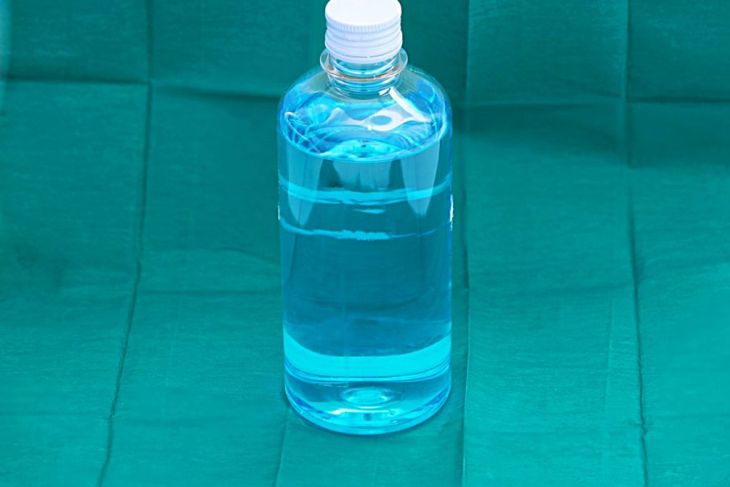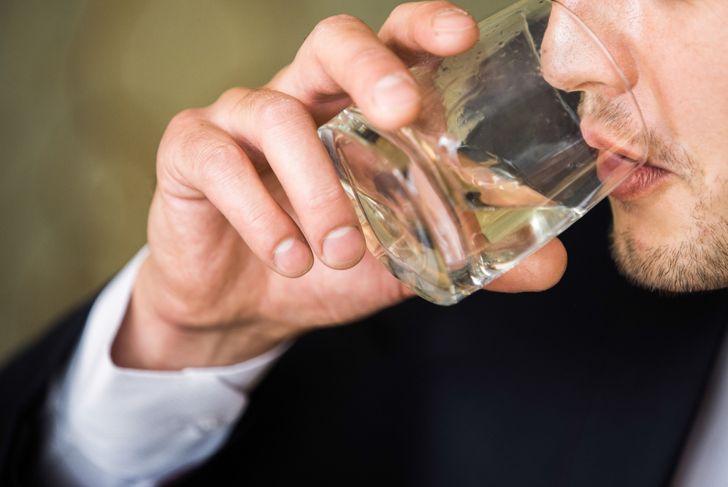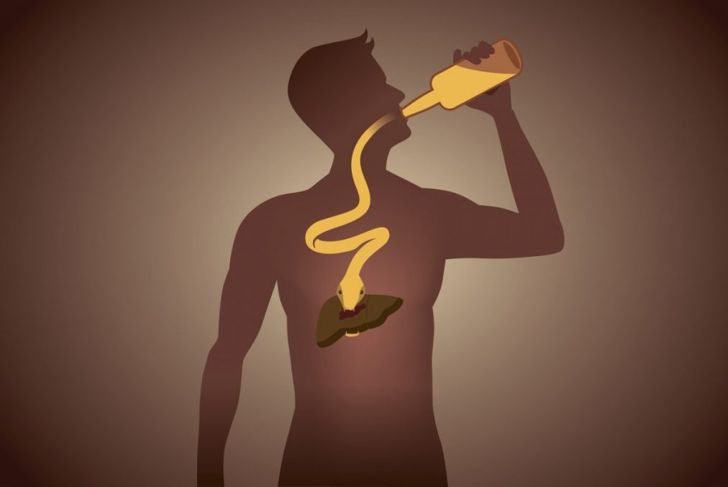Alcohol poisoning is the state of having a toxic amount of alcohol in the blood. The condition usually occurs after a person consumes a large amount of alcohol over a short period. Approximately 2,200 people die from alcohol poisoning in the United States each year. The risk of alcohol poisoning varies according to several physical attributes including size, weight, overall health, and tolerance level. Behavioral risks of alcohol poisoning include combining drugs and drinking when the individual ate their last meal, the alcohol percentage of the drinks, and the rate of consumption.
Symptoms of Alcohol Poisoning
The symptoms of alcohol poisoning include confusion, vomiting, and seizures. Breathing slows down to less than eight breaths per minute, and irregular breaths may be more than ten seconds apart. Blue-tinged or pale skin is also a symptom — the blueish color indicates that oxygen is too low. Hypothermia or low body temperature and unconsciousness may also occur.
Types of Alcohol
Ethyl alcohol is the only type of alcohol that is safe for consumption, assuming it is pure. Isopropyl alcohol is present in rubbing alcohol, lotions, and several cleaning products. Methanol or ethylene glycol is a component in paints, solvents, and antifreeze. Methanol and isopropyl alcohol are poisonous regardless of the amounts consumed, so consumption requires immediate medical attention.
Binge Drinking
The most common cause of alcohol poisoning is binge drinking, defined for men as five or more alcoholic beverages in two hours, and women as four or more alcoholic beverages in two hours. Approximately 90% of binge drinkers that develop alcohol poisoning are not alcoholics. The condition may occur after a one-time binge, or in individuals who drink regularly.
Alcohol Absorption
Alcohol is absorbed by the body very quickly, much faster than food or nutrients. Food travels through the digestive system for hours as the body absorbs necessary nutrients, but the body absorbs alcohol almost immediately at many points in the digestive system. The removal of alcohol from the body occurs at a much slower pace than absorption. It is important to remember that listlessness and other stereotypical signs of extreme intoxication are not the only signs someone has had too much to drink — a person can consume a fatal amount of alcohol while conscious and talkative. It can even happen after the person has stopped drinking. The alcohol in the stomach and intestine are absorbed into the blood and continue to raise blood alcohol levels.
What is a ‘Drink’ of Alcohol?
The amount of an alcoholic beverage that counts as one drink varies according to the type of beverage. Medical professionals consider one drink to be 12 ounces of regular beer at 5% alcohol content, 8 ounces of malt liquor at 7% alcohol content, 5 ounces of wine at 12% alcohol content, and 1.5 ounces of 80-proof hard liquor. 80-proof is roughly 40% alcohol. Mixed drinks are more difficult to judge because they might contain multiple servings and types of alcohol.
Middle-Aged and Older Adults
Deaths from alcohol poisoning occur most often in middle-aged adults between the ages of 55 and 64. Three-quarters of the fatalities are men. Alcohol poisoning is a growing problem among older adults, particularly those who have lost their partners. Several factors play a role in the number of deaths in older populations. Body chemistry changes with age, and the liver becomes less efficient, as does every body system as we age. Alcohol builds up in the blood and is not removed quickly enough to prevent toxic levels. As older adults are more likely to take prescription medications, there is also a greater chance their medicines will interact poorly with alcohol.
Incidence and Fatalities
Binge drinking and alcohol poisoning are seen most often in teenagers and people in their early twenties. Almost 30% of fatalities due to alcohol poisoning occur in people with alcohol-use disorders. Young, healthy people with alcohol poisoning have a much better chance of recovery than the older population, and people with an alcohol-use disorder are likely to have chronic liver damage that contributes to toxic blood alcohol levels.
Complications
Potentially fatal complications of alcohol poisoning include vomiting and choking. Excessive alcohol inhibits the gag reflex and makes it difficult to wake up after passing out. An unconscious person laying on his or her back can inhale vomit into the lungs and stop breathing. Severe dehydration is a concern due to vomiting and the diuretic nature of alcohol. The body loses more fluid than it consumes during alcohol consumption, because alcohol causes the kidneys to produce more urine. Dehydration raises the risk of rapid heart rate, low blood pressure, and seizures.
Treatment
Alcohol poisoning requires medical treatment. Bystanders should call for help if there is uncertainty regarding whether a person is very intoxicated or experiencing alcohol poisoning. Make sure the individual is laying on his or her side. Wrap a blanket around them to prevent hypothermia. Do not ever leave an intoxicated, unconscious person alone.
Prevention
Prevent alcohol poisoning by drinking alcohol in moderation. Safe consumption for healthy adults is one drink per day for women and everyone over the age of 65 or two drinks per day for adult men. Avoid drinking alcohol on an empty stomach. Food slows alcohol absorption, although not enough to counteract binge drinking. Speak to teens and children about the dangers of alcohol poisoning and encourage them to make good decisions at parties or when out with friends.

 Home
Home Health
Health Diet & Nutrition
Diet & Nutrition Living Well
Living Well More
More




















